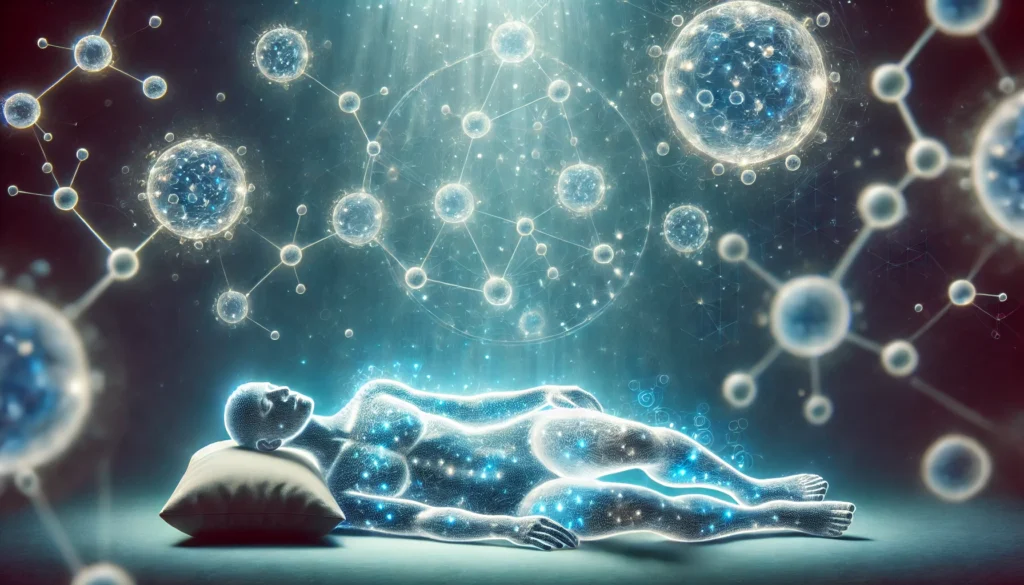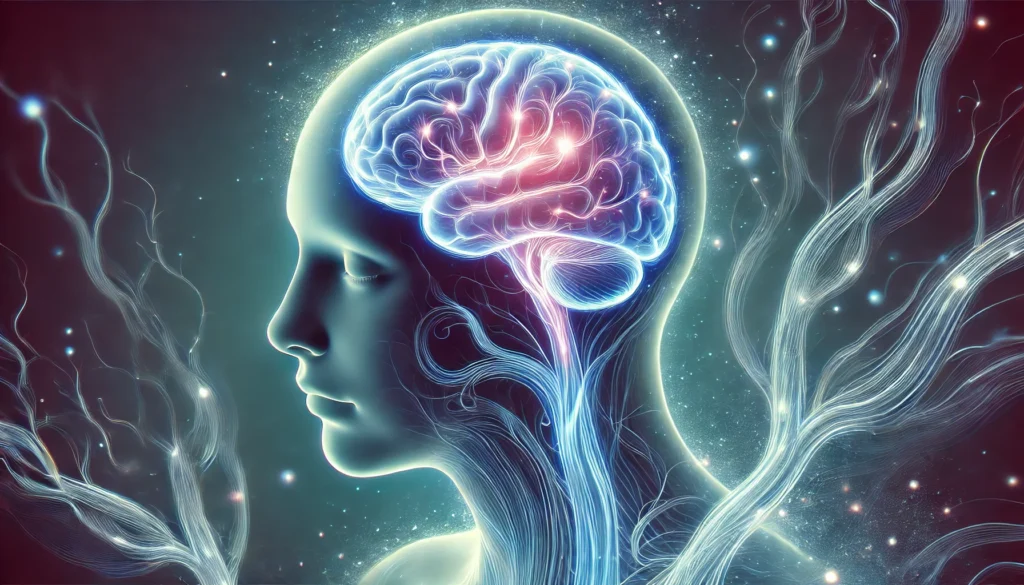In the hustle and bustle of modern life, sleep often takes a back seat to the demands of work, social obligations, and digital distractions. Yet, the consequences of sleep deprivation extend far beyond mere fatigue. Emerging research underscores a disconcerting link between lack of sleep and accelerated aging, with profound implications for our health and longevity. This article delves into how sleep deprivation can age you, exploring the intersection of sleep and aging, and offering insights into how restoring quality sleep can serve as a fountain of youth.
You May Also Like: Understanding the Impact of Chronic Sleep Deficiencies
Understanding the Science of Sleep and Aging
Sleep, though often overlooked, is a fundamental pillar of health that influences nearly every physiological process. The human body follows a circadian rhythm—a 24-hour internal clock—that regulates the sleep-wake cycle. During sleep, particularly the deep stages of non-REM and REM sleep, the body performs critical repair and maintenance functions. These include cellular repair, hormone regulation, and detoxification processes, all essential for maintaining youthful vitality.
The Importance of Circadian Rhythms
Circadian rhythms are not just about sleep timing; they influence numerous biological functions. These rhythms help regulate metabolism, hormone release, and even body temperature. Disruption to these rhythms can lead to a cascade of health issues, including premature aging. Modern lifestyles, characterized by irregular sleep patterns and excessive exposure to artificial light, can severely disrupt these natural rhythms.
Light exposure plays a crucial role in maintaining circadian rhythms. Natural sunlight exposure during the day and darkness at night help synchronize our internal clocks. However, the pervasive use of electronic devices at night exposes us to blue light, which can trick our brains into thinking it’s daytime, thereby delaying sleep onset and altering our circadian rhythms.
The Role of Sleep in Cellular Repair
One of the most significant ways sleep affects aging is through its role in cellular repair and regeneration. During sleep, the body produces growth hormone, which is instrumental in repairing tissues and muscles. This process is crucial for maintaining the skin’s elasticity, muscle tone, and overall physical appearance. Chronic sleep deprivation disrupts these repair processes, leading to premature aging signs such as wrinkles, sagging skin, and decreased muscle mass.
Cellular repair mechanisms are activated during deep sleep stages. Proteins are synthesized, and damaged cells are repaired, processes essential for recovery from daily wear and tear. This repair is not limited to skin and muscles but extends to internal organs and the brain, where sleep facilitates the clearance of neurotoxins that accumulate during wakefulness.
Hormonal Balance and Aging
The hormonal symphony orchestrated during sleep is another critical aspect. Melatonin, a hormone produced during sleep, is a powerful antioxidant that combats oxidative stress, a major contributor to aging. Furthermore, sleep regulates cortisol levels, the stress hormone that, when elevated, accelerates the aging process. Chronic sleep deprivation leads to persistent cortisol elevation, which can result in increased inflammation, impaired immune function, and accelerated cellular aging.
Melatonin’s role extends beyond sleep regulation; it also acts as a protective agent against age-related diseases. It helps in DNA repair and supports the immune system. Conversely, high cortisol levels not only age the skin but also contribute to conditions like hypertension and diabetes, which are associated with aging.
Detoxification Processes During Sleep
During sleep, the body undergoes detoxification processes that are vital for health and longevity. The liver, a key organ in detoxification, works most efficiently during the night, processing toxins and clearing them from the body. Sleep deprivation hampers these detoxification processes, leading to toxin accumulation, which can accelerate aging and contribute to the development of chronic diseases.
The glymphatic system, responsible for clearing waste from the brain, is particularly active during sleep. This system removes metabolic waste products, including beta-amyloid, which is implicated in Alzheimer’s disease. Insufficient sleep reduces the effectiveness of this system, increasing the risk of neurodegenerative diseases.

The Consequences of Chronic Sleep Deprivation
The effects of chronic sleep deprivation extend beyond physical appearance, affecting cognitive function, emotional well-being, and overall health.
Cognitive Decline and Neurodegeneration
Sleep is essential for cognitive processes, including memory consolidation, learning, and problem-solving. Lack of sleep impairs these functions, leading to cognitive decline and increasing the risk of neurodegenerative diseases such as Alzheimer’s. Sleep deprivation disrupts the brain’s ability to clear beta-amyloid, a toxic protein linked to Alzheimer’s disease, highlighting the critical role of sleep in maintaining brain health.
Memory consolidation, a process where the brain converts short-term memories into long-term ones, occurs predominantly during REM sleep. Without sufficient sleep, the brain struggles to retain new information, impairing learning and memory. Moreover, chronic sleep deprivation can lead to structural changes in the brain, particularly in areas involved in memory and learning.
Emotional and Mental Health Impact
The relationship between sleep and mental health is bidirectional. Poor sleep exacerbates stress, anxiety, and depression, while these conditions, in turn, contribute to sleep disturbances. This vicious cycle can accelerate aging by increasing inflammation and oxidative stress, both of which are detrimental to mental and physical health.
Sleep deprivation affects emotional regulation, making individuals more susceptible to mood swings and negative emotions. The amygdala, the brain’s emotional center, becomes overactive with lack of sleep, leading to heightened emotional responses. Over time, this can contribute to mental health disorders and increase the risk of psychiatric conditions.
Impact on Physical Health and Longevity
Chronic sleep deprivation is associated with a host of physical health issues that can shorten lifespan. It increases the risk of cardiovascular diseases, obesity, and type 2 diabetes. Sleep deprivation affects insulin sensitivity, leading to glucose intolerance and weight gain. Furthermore, it weakens the immune system, making the body more susceptible to infections and diseases.
Inadequate sleep also affects heart health, elevating blood pressure and increasing the risk of heart attacks and strokes. The body’s inflammatory response is heightened with sleep deprivation, contributing to chronic inflammation, a known factor in many age-related diseases.

Practical Strategies for Restoring Quality Sleep
Understanding the importance of sleep is only the first step. Implementing practical strategies to improve sleep quality can significantly impact aging and overall health.
Establishing a Sleep-Friendly Environment
Creating an optimal sleep environment is crucial for improving sleep quality. This includes maintaining a cool, dark, and quiet bedroom, investing in a comfortable mattress and pillows, and minimizing exposure to electronic screens before bedtime. These measures promote the production of melatonin and enhance the sleep-wake cycle.
Temperature regulation in the bedroom plays a significant role in sleep quality. A cooler room encourages the natural drop in body temperature associated with sleep onset. Blackout curtains can help block external light sources, while white noise machines or earplugs can eliminate disruptive sounds.
Prioritizing Sleep Hygiene
Sleep hygiene encompasses behaviors and practices that promote consistent, restorative sleep. This includes maintaining a regular sleep schedule, avoiding caffeine and heavy meals close to bedtime, and incorporating relaxation techniques such as meditation or deep breathing exercises. Consistency in these practices reinforces the body’s natural circadian rhythm, facilitating better sleep quality.
Limiting naps, especially in the afternoon, can help maintain a consistent sleep schedule. Exposure to natural light during the day, particularly in the morning, can help regulate the sleep-wake cycle. Additionally, creating a pre-sleep routine, such as reading or taking a warm bath, signals the body that it’s time to wind down.
Embracing Mindfulness and Stress Reduction
Given the interplay between stress and sleep, incorporating mindfulness and stress-reduction techniques can significantly enhance sleep quality. Practices such as yoga, meditation, and progressive muscle relaxation have been shown to reduce stress and improve sleep, thereby mitigating the aging effects of sleep deprivation.
Mindfulness practices focus on being present in the moment, which can reduce racing thoughts that interfere with sleep. Progressive muscle relaxation, which involves tensing and relaxing muscle groups, can ease tension and promote relaxation. Guided imagery, where individuals visualize calming scenes, can also be an effective relaxation tool.
Incorporating Physical Activity
Regular physical activity can improve sleep quality and overall health. Exercise helps regulate the body’s internal clock, reduces stress levels, and promotes deeper sleep. However, the timing of exercise is crucial; engaging in vigorous activity close to bedtime can have the opposite effect, making it difficult to fall asleep.
Activities such as walking, swimming, or yoga can be beneficial for sleep when done consistently. Exercise increases body temperature, and the subsequent drop in temperature post-exercise can facilitate sleep onset. Moreover, physical activity can help reduce symptoms of sleep disorders like insomnia and sleep apnea.

The Future of Sleep Science and Aging
As research continues to unravel the complexities of sleep and aging, innovative solutions are emerging. Advanced sleep tracking technologies, personalized sleep interventions, and novel therapeutics targeting sleep disorders hold promise for enhancing sleep quality and mitigating the aging process.
Personalized Sleep Interventions
Advancements in sleep science are paving the way for personalized sleep interventions tailored to individual needs. Genetic testing, for instance, can provide insights into one’s predisposition to sleep disorders, allowing for targeted interventions. Moreover, wearable technology and sleep apps offer real-time feedback on sleep patterns, enabling individuals to make informed adjustments to their sleep habits.
Personalized interventions can include tailored sleep schedules, specific light therapy regimens, and customized relaxation techniques. Genetic insights can help identify individuals at risk for sleep disorders, allowing for early interventions that can prevent long-term health consequences.
The Role of Nootropics and Supplements
Biohackers and wellness enthusiasts are increasingly exploring nootropics and supplements to enhance sleep quality and combat aging. Substances such as magnesium, melatonin, and L-theanine have shown promise in promoting relaxation and improving sleep. However, it is essential to approach these supplements with caution and consult healthcare professionals to ensure safety and efficacy.
Magnesium plays a role in regulating neurotransmitters that promote sleep, while L-theanine, found in tea leaves, can enhance relaxation without sedation. Melatonin supplements can help regulate sleep-wake cycles, particularly in individuals with disrupted circadian rhythms. Nonetheless, professional guidance is crucial to avoid interactions with medications and ensure appropriate dosing.
Innovations in Sleep Technology
Emerging technologies are transforming how we approach sleep health. Sleep tracking devices, smart mattresses, and apps provide valuable insights into sleep patterns and behaviors. These technologies can identify disturbances and suggest tailored interventions to improve sleep quality.
Smart mattresses equipped with sensors can adjust firmness and temperature to optimize sleep comfort. Apps can offer personalized sleep coaching based on individual data, providing tips and exercises to enhance sleep hygiene. As technology advances, these tools will become more sophisticated, offering even greater potential to improve sleep and health.
Conclusion
The adage “sleep is the best medicine” holds profound truth in the context of aging. The impact of sleep deprivation on aging is far-reaching, affecting physical appearance, cognitive function, and overall health. By prioritizing quality sleep and implementing practical strategies, individuals can harness the power of sleep as a tool for maintaining youthfulness and vitality. As science continues to advance, the potential for innovative solutions to enhance sleep and mitigate aging remains promising, offering hope for a healthier, more vibrant future.
In conclusion, let us not underestimate the power of a good night’s sleep. The path to graceful aging may well begin with the simple act of closing our eyes. By embracing practices that promote restorative sleep, we can unlock the potential for a longer, healthier, and more fulfilling life. As research continues to evolve, staying informed and proactive about our sleep health will be crucial in navigating the challenges of aging.
Further Reading:
Genetics, Aging and Sleep: Sleep and Aging
Sleep and Biological Aging: A Short Review
Sleep and longevity: How quality sleep impacts your life span
Important Note: The information contained in this article is for general informational purposes only, and should not be construed as health or medical advice, nor is it intended to diagnose, prevent, treat, or cure any disease or health condition. Before embarking on any diet, fitness regimen, or program of nutritional supplementation, it is advisable to consult your healthcare professional in order to determine its safety and probable efficacy in terms of your individual state of health.
Regarding Nutritional Supplements Or Other Non-Prescription Health Products: If any nutritional supplements or other non-prescription health products are mentioned in the foregoing article, any claims or statements made about them have not been evaluated by the U.S. Food and Drug Administration, and such nutritional supplements or other health products are not intended to diagnose, treat, cure, or prevent any disease.


